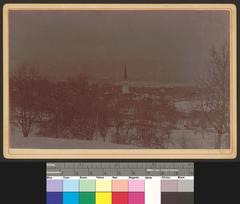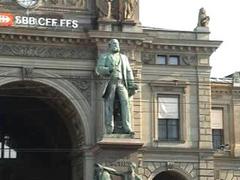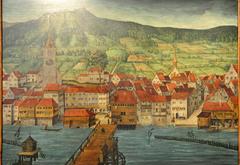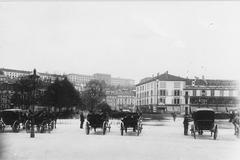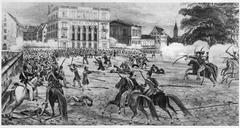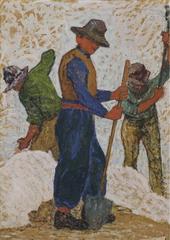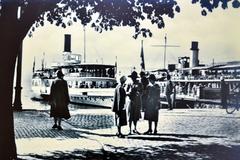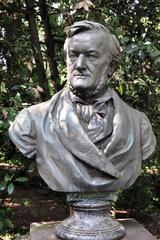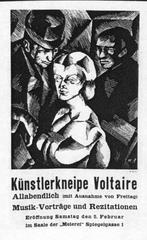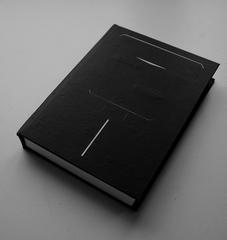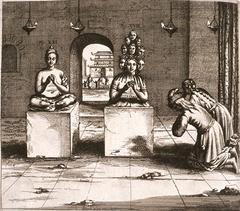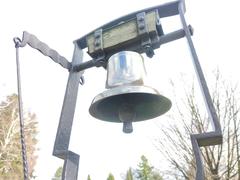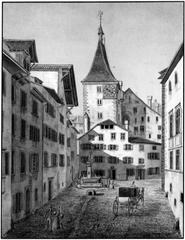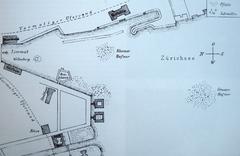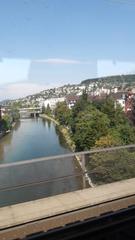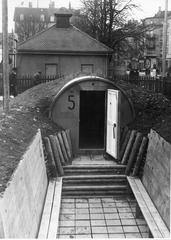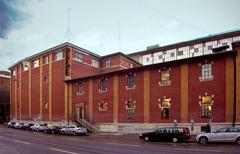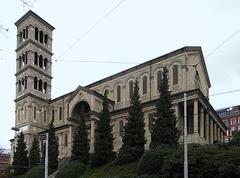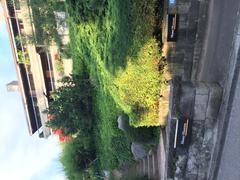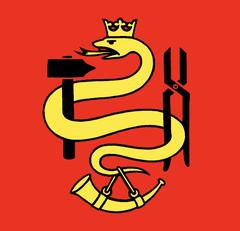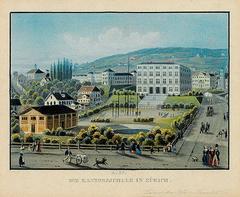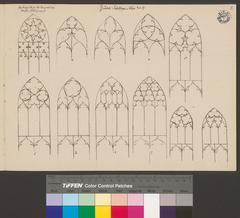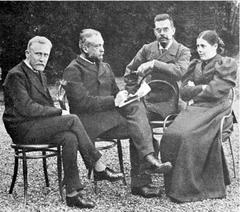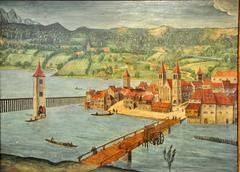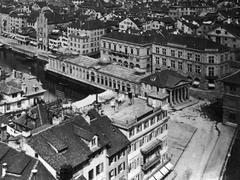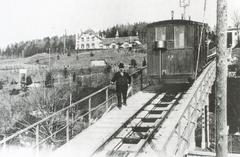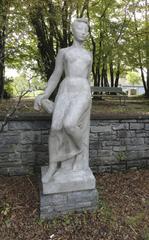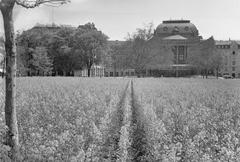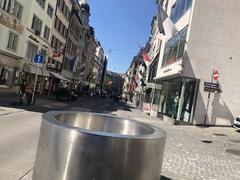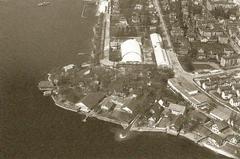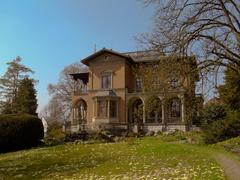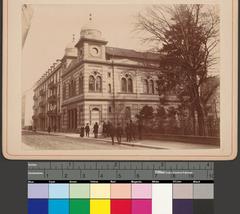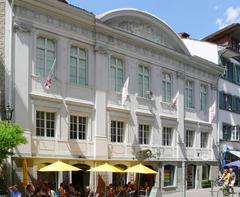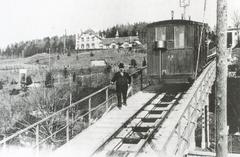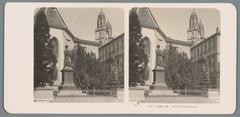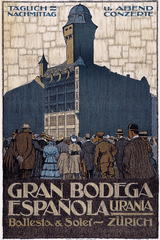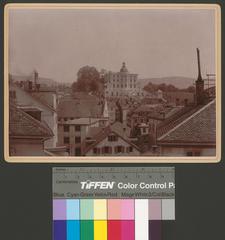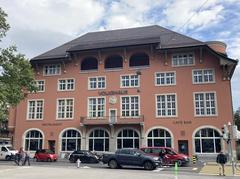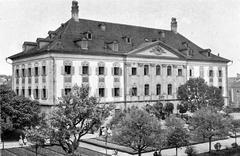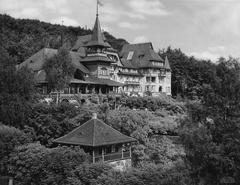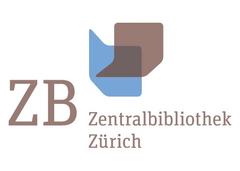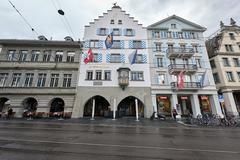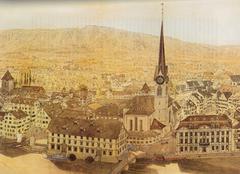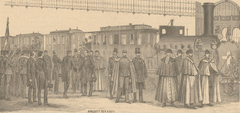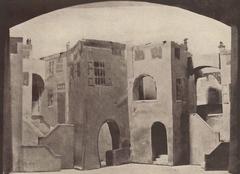Visiting the Staatsarchiv des Kantons Zürich: Tickets, Hours, and Essential Visitor Guide
Date: 14/06/2025
Introduction: The Significance of the Staatsarchiv des Kantons Zürich
The Staatsarchiv des Kantons Zürich stands as a guardian of the region’s collective memory, preserving more than a millennium of Zurich’s and Switzerland’s history. Officially established in 1803 and rooted in documentation dating back to 853 AD, including the founding charter of Fraumünster Abbey, the Staatsarchiv is a vital institution for research, education, and public engagement. Its mission encompasses safeguarding millions of documents, maps, photographs, and audiovisual materials that reveal the political, social, and cultural evolution of the canton and Switzerland as a whole.
Open to the public free of charge, the Staatsarchiv serves as a crucial resource for historians, genealogists, students, and anyone interested in Zurich’s past. Through ongoing digitization, it makes many of its holdings accessible online, supporting modern research methods and expanding access for a global audience. Conveniently located in Zurich and fully accessible, the Staatsarchiv collaborates with prominent institutions such as the Zentralbibliothek Zürich and the Landesmuseum, reinforcing its role as a hub of historical and cultural discovery.
For up-to-date information on visiting hours, registration, and available services, consult the official Staatsarchiv Zürich website. Digital catalogs and search tools further enhance access to the collections (Staatsarchiv Online Search).
Table of Contents
- Introduction
- History and Cultural Significance
- Visitor Information
- Collections and Highlights
- Research and Public Services
- Preservation and Sustainability Initiatives
- Educational Outreach and Community Engagement
- Nearby Attractions in Zürich
- FAQs
- Summary and Visitor Tips
- Sources
History and Cultural Significance
Origins and Development
Founded in the wake of the Canton’s reorganization in 1803, the Staatsarchiv evolved from a document repository to a modern, professionally managed archival institution. Its holdings include government decrees, council proceedings, legal codes, maps, photographs, and audiovisual media—sources critical for tracing Zurich’s and Switzerland’s evolution from the Middle Ages to the present.
The “Memory of the Nation”
Often described as the “Gedächtnis der Nationen” (Memory of the Nation), the Staatsarchiv’s collections extend back to 853 AD. They have survived major historical upheavals, providing a rare continuity that makes Zurich’s archival heritage exceptional in Europe (Wikipedia). The archive’s role as the official repository for government, court, and administrative documents underscores its importance for legal and civic transparency (ZH.ch).
Professionalization and Digitization
Through systematic cataloging and large-scale digitization, the Staatsarchiv has become a leader in open government data and digital access. Hundreds of thousands of key documents are available online, facilitating research and supporting innovative analysis tools.
Visitor Information
Opening Hours
- Monday: Closed
- Tuesday: 08:00 – 19:00
- Wednesday: 08:00 – 17:30
- Thursday: 08:00 – 19:00
- Friday: 08:00 – 17:30
- Saturday & Sunday: Closed
Note: Always check the official website for holiday closures or special opening hours.
Admission and Tickets
- Admission: Free for all visitors.
- Registration: Required for access to reading rooms and archival materials. Bring valid photo ID for first-time registration.
- Guided Tours/Events: Some special tours or events may require advance booking and a fee.
Location and Accessibility
- Address: Winterthurerstrasse 170, 8057 Zürich (Irchel campus)
- Public Transport: Accessible via tram lines 4, 11, 13, and 17; nearby stops provide direct access.
- Parking: Limited; public transit is recommended.
- Accessibility: The building is wheelchair accessible with adapted restrooms and elevator access.
Facilities and Services
- Reading Rooms: Spacious, well-lit, with desks, power outlets, and Wi-Fi. Lockers provided for personal items.
- Specialist Library: On-site, with reference materials on Zurich and Swiss history.
- Digital Access: Public computers and Wi-Fi available for consulting digitized collections (Online Catalog).
- Refreshments: Vending machines onsite; university cafeterias nearby.
- Photography: Permitted for personal research (no flash or tripods).
- Assistance: Archivists provide research support and introductory sessions.
Guided Tours and Educational Programs
- Regular tours introduce visitors to the archive’s history, collections, and conservation efforts.
- Special exhibitions and workshops highlight topics such as Zurich’s infrastructure, migration, and democracy.
- English-language tours are available upon request.
Collections and Highlights
- Medieval Charters: Oldest document is the Fraumünster Abbey’s charter from 853.
- Government Records: Protocols from the 15th century onward.
- Land Registers: Extensive property records dating from the 16th century.
- Photographic Archives: Over 18,000 images documenting Zurich’s urban development and public works.
- Patents and Technical Records: Patents from 1888–1968.
- Private Archives: Documents from families, companies, and local communities.
- Object Collection: State insignia and government artifacts dating as far back as 1347.
Many of these resources are accessible via the Staatsarchiv’s online search portal.
Research and Public Services
- Research Support: Expert staff assist with genealogical, academic, and legal research.
- Training: The archive offers records management courses for public agencies.
- Community Engagement: The Freundeskreis Staatsarchiv Zürich supports exhibitions, events, and publications.
Preservation and Sustainability Initiatives
Conservation and Restoration
A dedicated team of conservators ensures the long-term survival of fragile documents with advanced restoration techniques and environmental controls (Staatsarchiv Conservation).
Digitization and Access
Millions of pages, including parish registers and historical maps, are digitized to reduce handling and improve worldwide access. The digitization process meets international standards for quality and metadata (Staatsarchiv Online Search).
Environmental Controls
The building features climate-controlled storage, fire suppression, and robust security systems to protect collections.
Sustainable Practices
The Staatsarchiv integrates energy-efficient lighting, recycling, and sustainable materials into its operations, and is continually upgrading its infrastructure to meet digital preservation challenges.
Community Involvement
Volunteers assist in document indexing and transcription. Community and philanthropic support helps fund conservation and digitization projects.
Educational Outreach and Community Engagement
- Exhibitions, lectures, and workshops attract thousands of visitors annually, supporting historical literacy and civic education.
- Collaborations with museums, libraries, and universities foster joint exhibitions and research.
- Active social media presence keeps the public informed and engaged (Staatsarchiv Social Media).
Nearby Attractions in Zürich
Combine your visit to the Staatsarchiv with other cultural highlights:
- Swiss National Museum
- Kunsthaus Zürich (Zurich Art Museum)
- Zürich Old Town (Altstadt)
- University of Zurich Museums
- Irchelpark
Frequently Asked Questions (FAQ)
Q: What are the Staatsarchiv Zürich’s visiting hours?
A: Tuesday and Thursday 08:00–19:00; Wednesday and Friday 08:00–17:30; closed Mondays and weekends.
Q: Is admission free?
A: Yes, entry is free for all visitors.
Q: Are guided tours available?
A: Yes, tours are offered regularly (in German; English on request). Book in advance for groups.
Q: Is the building accessible?
A: Yes, it is wheelchair accessible with elevator and adapted restrooms.
Q: How do I register for access?
A: Register at reception with a photo ID; required for reading room access.
Q: Can I take photos?
A: Yes, for personal research (no flash or tripods).
Q: How do I get there by public transport?
A: Use tram lines 4, 11, 13, or 17. Parking is limited; public transport is recommended.
Q: Are digital resources available?
A: Yes, use the online search portal to access many digitized collections.
Summary and Visitor Tips
The Staatsarchiv des Kantons Zürich is a cornerstone of Zurich’s historical and cultural identity, offering free and inclusive access to a treasure trove of documents, photographs, and artifacts. With its robust digital resources, professional research support, and dynamic educational programming, the archive caters to scholars, genealogists, students, and curious visitors alike.
To make the most of your visit:
- Consult the official website for current hours, events, and registration info.
- Plan ahead by exploring the online catalog.
- Consider combining your visit with nearby museums and Zurich’s Old Town.
- Follow the Staatsarchiv on social media for news and exhibition updates.
- Download the Audiala app for guided audio tours of Zurich’s historical sites.
Immerse yourself in Zurich’s extraordinary history at the Staatsarchiv—where the city’s past is preserved for present and future generations.
Sources and Further Information
- Visiting the Staatsarchiv Zürich: Hours, Tickets, History, and What to See, 2024 (Wikipedia)
- Staatsarchiv des Kantons Zürich official website, 2024 (Staatsarchiv Zürich)
- Online catalog and search portal of Staatsarchiv Zürich, 2024 (Staatsarchiv Online Search)
- Visiting Staatsarchiv Zürich: Hours, Tickets, and What to Know, 2024 (Staatsarchiv Zürich)
- Visiting the Staatsarchiv Zürich: History, Access, and Research Tips, 2024 (Staatsarchiv Zürich)
